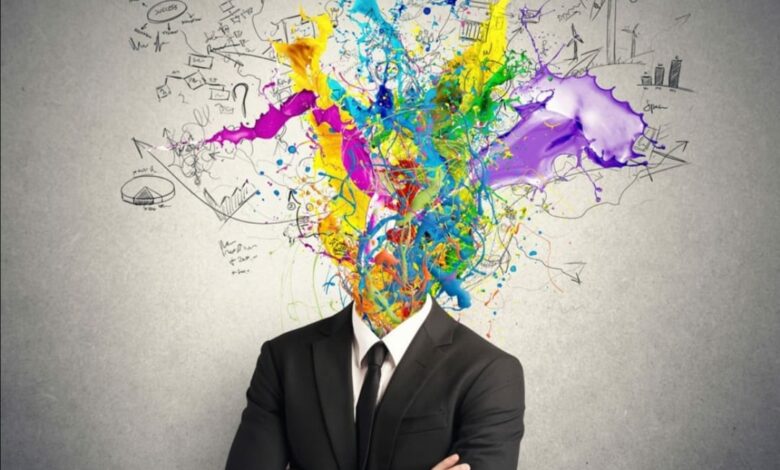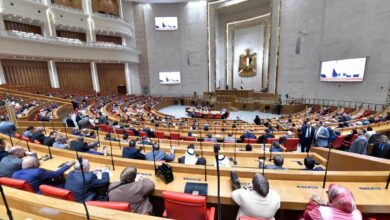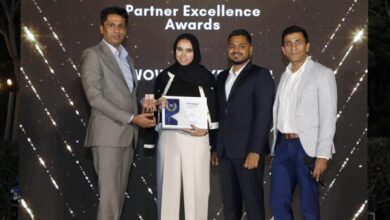
The rise of fantastic new initiatives by the Egyptian Government headed by President Abdel Fatah El Sisi have seen new innovative and creative modes of education in the fields of infrastructure with a special focus on digital technologies. The government has seen the importance of creative approaches and communication skills as an addition to these programs and there is proof that they are right.
The campaigns are primarily training programs; more than 18 major nationwide technology programs like future technologies Rowad, Presidential initiative Africa for the innovation and creative applications and gaming, Madina El Marefa at the new Administrative Capital.
Some of these projects are estimated to cost over LE 2 billion with the focus being on a creative approach in teaching modes to enhance a greater understanding and to hone in on communication skills.
The use of trainers for these specific programs has also seen an increase from 4000 to over 14,000 trainers from 2018 to 2019.
This then poses a very important question. Can creative modes of educational tools advance the minds and the learning experience in other unrelated disciplines?
To answer this, let’s first explore the idea of creativity, the idea of the arts and the potential of being perceived as having creative abilities.
These issues have always been seen as an extraordinary, vague phenomenon; unclear about what it is to be creative and how to apply it to things like technology, medicine, engineering and law.
In my professional opinion being a practitioner in the capacity of director of films, theater and media theory and practice, the human creative mind is abstract, vast and at the same time distinctive.
The need to harness one’s capabilities in any discipline using principles of creativity depends heavily on self-awareness and a mature attitude; in order to fulfill a conscious development in the exploration of ideas.
Education systems today boast academic ability and a vision for an important future. A hierarchy is set in place to achieve a secure future, with subjects pertaining to the arts sadly at the thin end of a structured spectrum: Mathematics and science at one end and language, the humanities and arts at the other. The higher you are on that spectrum the higher the respectability; socially, professionally and economically.
In other words most children are-so it seems- somewhat discouraged; steering away from such things of creative stimulation whilst in school and later on as young adults in university.
“All children are artists. The problem is how to remain an artist once he grows up”. In saying that, Pablo Picasso must have been referring to the factors that impede, slow down and eradicate our initial tendency to move abstractly, freely.
What is meant by that is that the keenness to have a go and not be frightened of what other people have to say: even if what they are saying or doing is wrong, is something that most adults find extremely difficult to do. I for one used to be like that, until I discovered the creative process of educating the mind.
Playing out one’s fantasies and just going for it, without thinking of consequence and outcome might seem absurd at first. However, in all of my 19 years of experience in teaching communications/media and film to corporations and government bodies and at the university level; the results of these issues have proven amazing.
When I approach a project in industry or when I teach, I practice with the participants a creative free brainstorming of ideas, organically including play and randomness: what comes out of this is an interesting process. These then become tangible ideas that construct a clearer meaning and an overall vision towards more organized thoughts that eventually lead to greater outcomes.
The final destination outcome is never our starting point.
Initially is a creative, free process with no restrictions or expectations to be right in your decisions. Expected to be right from the get-go is a limiting theory and actually leads to a problematic aftermath; whereby, not all of the possibilities were thought through.
But it is exactly this level of spontaneity and adventure which is lacking overall in a worldwide education curriculum.
If you have ever been told not to study music, or painting or writing for you won’t become a musician or a novelist or a painter and that your artwork will end up on some lonely park bench without a reader or audience, then you are certainly not alone.
Sir Ken Robinson’s video titled “Is education killing creativity”, really reminded me of people I had met who were-to say the least- amazingly talented and who would shine without inhibition, however sadly weren’t in the right job, according to their abilities; their confidence and original perspectives on ideas, were shunned, quite ruthlessly by systematic limitations.
Sir Ken asks why emphasis is put on literacy as opposed to a natural calling and why the education system starts to teach children from the waist up and then focuses only on their heads and then only on one side: the left rational brain vs. the right creative brain. What about the rest of the body? He asks.
“Academic ability has really dominated our view of intelligence and the consequence is that highly talented people think they are not”, Sir Ken.
In all of my years as an educator, I can see that education has become in my opinion like a production machine: outcomes taking prominence over the process. As if what you put in, will ultimately come out as a commodity; an investment typically, to facilitate industry.
All the while leaving behind what could have been; wonderfully interactive minds, dynamic and tremendous thought. Instead, we are seeing a whole lot of doubting adults not knowing where their talents truly could have been.
A study from the University of Alabama, U.S. by Barton and Cohen “Classroom Gender Composition and Peer Relations”, examines what is seen as a narrow secular meaning of the word “education” and that future generations will ultimately lose their tendency to develop naturally.
The study found that without a creative process, overt aggression was on the increase, which is more demonstrative and physical in boys, whereas girls demonstrated relational aggression which is based on manipulation, intimidation and victimization.
These results were linked to the lack of cultural and artistic activities, which according to the study; artistic activities actually develop positive, emotional and sensitive behavior, through touch and hands-on experience.
The children in the study seemed to be more spatial, impulsive and more physical and so they needed to walk around without being made to feel disruptive. “There are those who have to move to think”, Barton and Cohen.
The findings concluded that the interactions of people should be a celebration of the human imagination and rather, the whole being should be educated, not just the rational mind.
“There is an obvious overall ill health of what is being provided in education and we must collectively rethink what exactly we are educating our children into”, Barton and Cohen.
The study also concluded that if we bring up our younger generations into only being result based thinkers, without a process of trial and error and only rewarding or punishing them for right or wrong answers, as opposed to them enjoying the growth as it occurs; then sadly the future of brighter ideas and human relevance in education will simply vanish.
Even in careers like engineering, cyber programming, artificial intelligence coders and government policymakers, there would be hope for a more humane attitude if a creative process is established.
As a result of the creative process one will learn and adapt important skills like empathy, patience, imagination, appreciation of color and form, sound and the most important thing; the courage to be wrong, learn, to cooperate and start all over again.
Randomness, openness to accident and serendipity are all just small steps on our journey of becoming.
I’ll leave you with two quotes to think about and I also commend the Government of Egypt for taking initiative to really focus on this new and relevant creative approach.
Perhaps we need to reconsider our education and steer towards the inclusion of the creative force of growth.
“An artist should never be a prisoner of himself, prisoner of style, prisoner of reputation, prisoner of success”. Henri Matisse “.
The one who plants trees, knowing that he or she will never sit in their shade, has at least started to understand the meaning of life”.”Rabindranath Tagore”.
- Dr. Hashem is an Australian Egyptian award-winning international director, an educator in media theory/literacy practice, researcher and writer, and currently a professor at the American University in Cairo. He has over 19 years of experience in the fields of media and communications. He Studied at the University of Melbourne (Media and sociology) and Deakin University (Creative practice/Drama/Storytelling) and is now undertaking studies in law at Central Queensland University as he is interested in the international landscape of media, public policy, and legislation.




